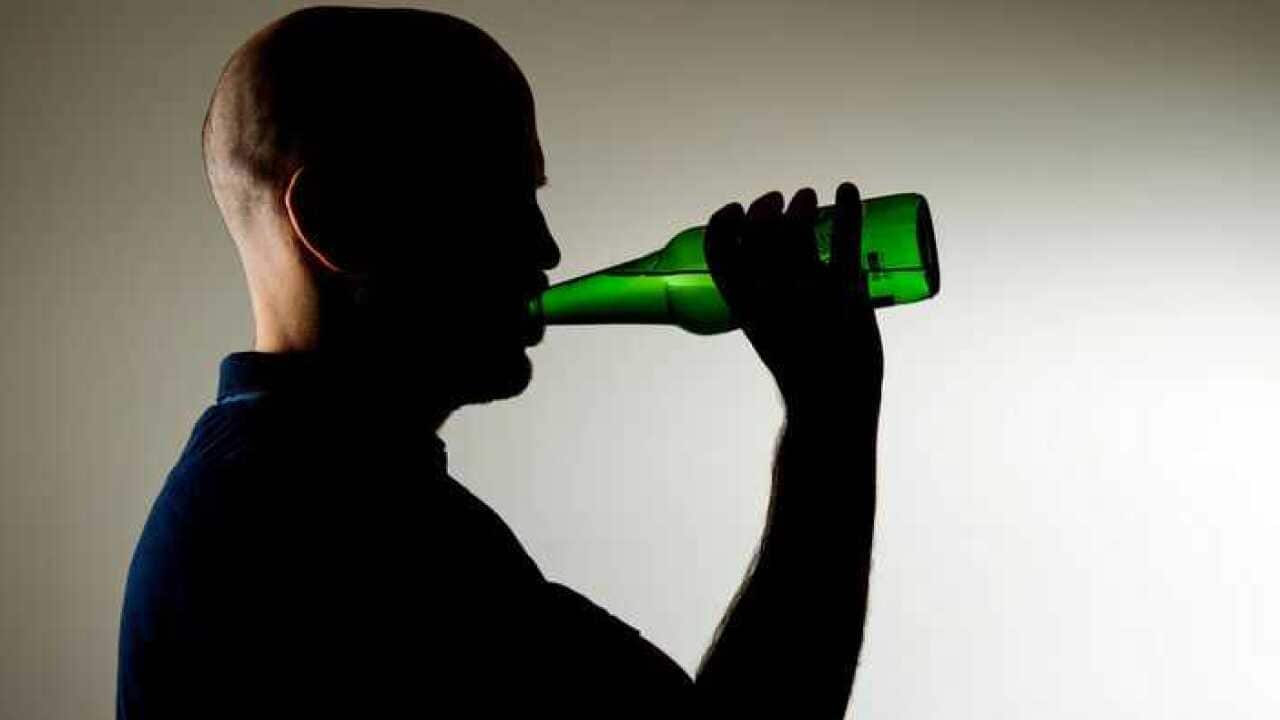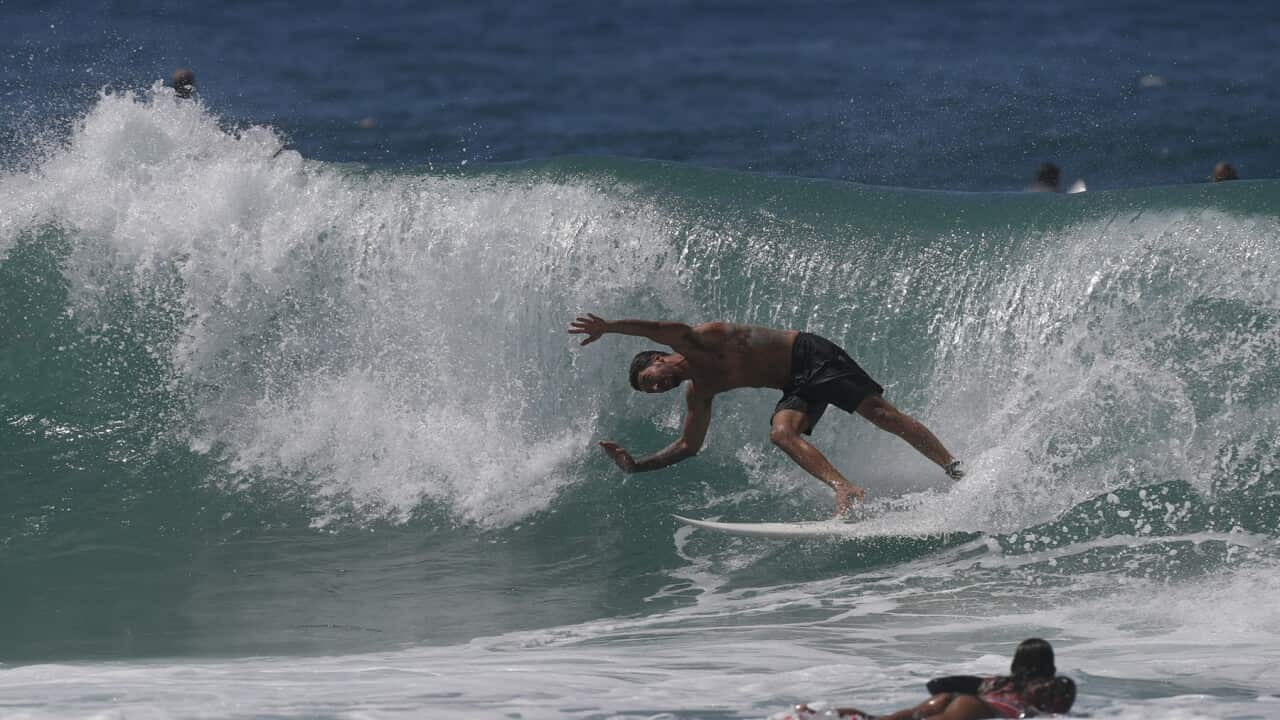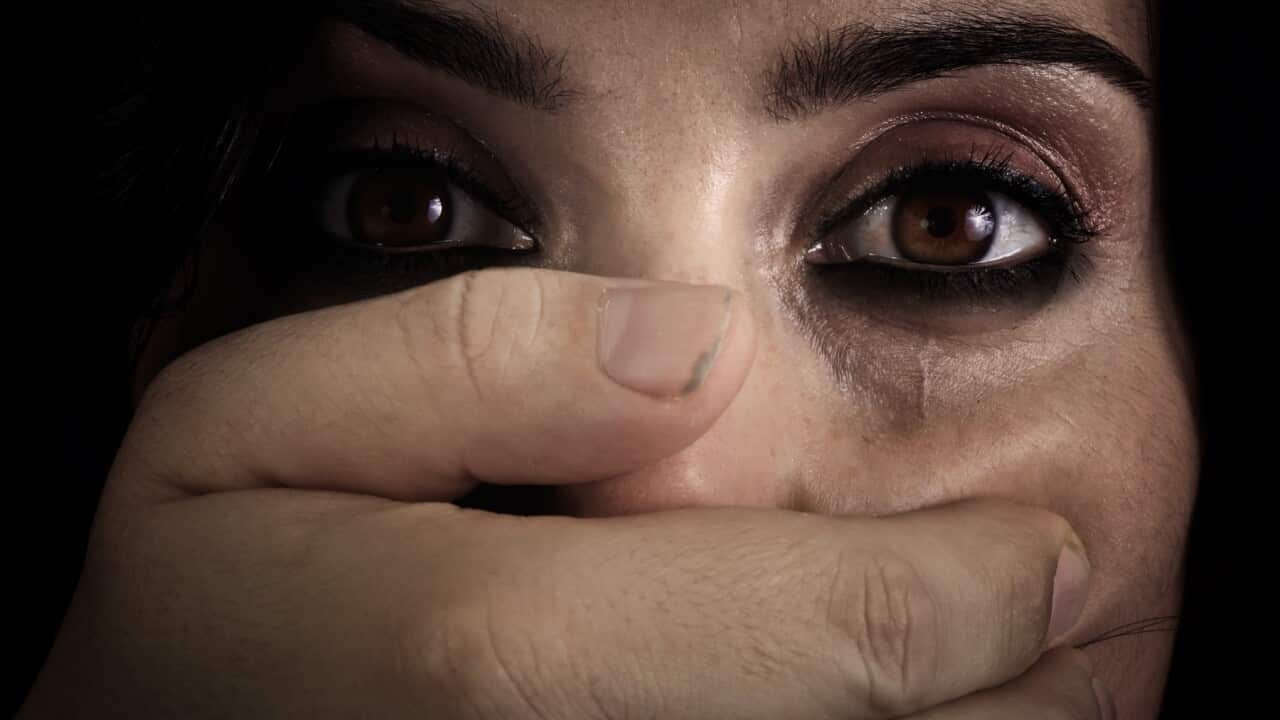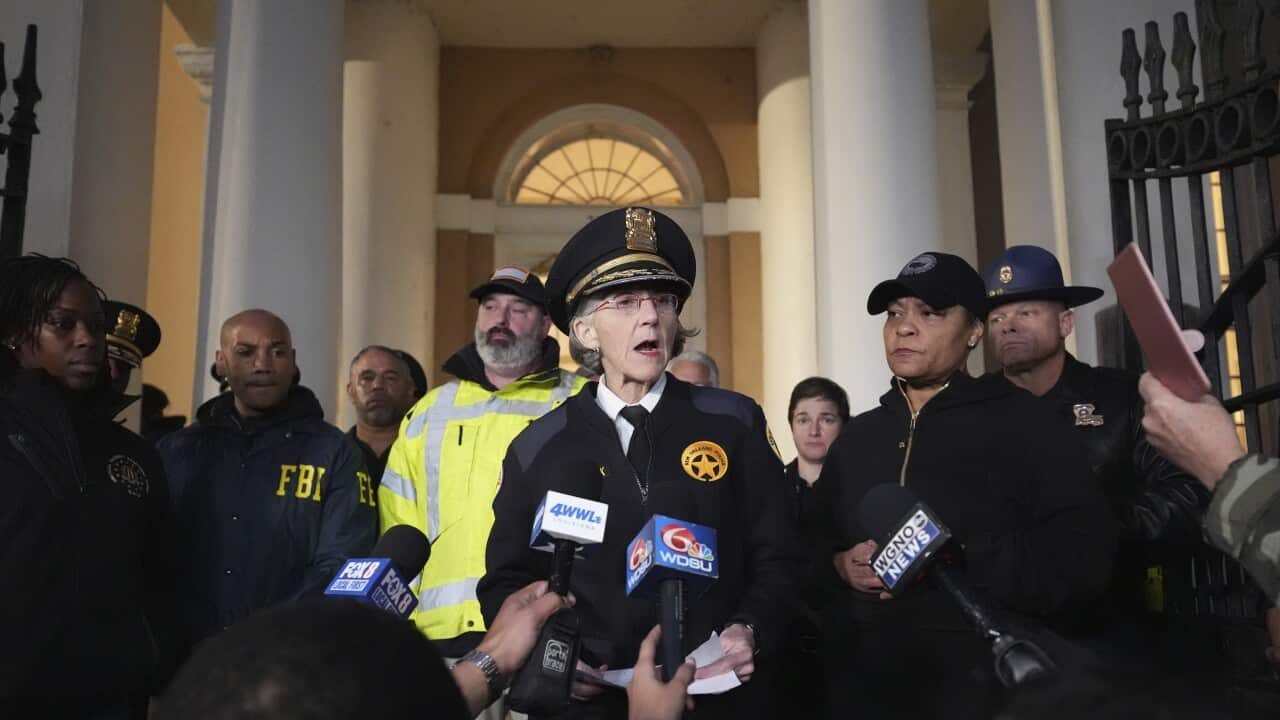English
For every person that struggles with alcohol, there's an estimated 8 people in their lives who are impacted, including children.
It's a sobering statistic.
In fact, 1 in 4 children in Australia are affected by someone's drinking.
Helen Gillies, the CEO of support group Al-Anon Family Groups Australia, says the impact of drinking on children is often forgotten about.
"You know a lot of people — especially even alcoholics and their families who have been in recovery for a long time — often think that the kids aren't affected. If if dad's been or mum's been sober for a long time that they think the kids haven't been affected by their drinking."
Ms Gillies says on the contrary, children of alcoholics or recovering alcoholics are more-often-than-not severely impacted by the experience.
"Often we'll see problems at school, problems in concentration, behavioural problems that seem out of character with the child's normal behaviour, attention problems, that sort of thing — and social interaction problems as well."
Al-Anon Family Groups is a nationwide organisation that supports families and friends of problem drinkers and facilitates Alateen, which is a fellowship of young Al-Anon members, usually teenagers, whose lives have been affected by someone else's relationship with alcohol.
The Alateen program aims to acknowledge the severity of these lived impacts, and the powerlessness children and young people often feel.
Ms Gillies says the meetings teach young people about the choices they do have, and help them understand what they cannot control.
"When we talk to these teenagers they often say that they try and stay out of their parents' way. They try not to cause any extra trouble. But they often feel responsible. They feel like they're somehow to blame. They feel like they need to control their parents' behaviour, and quite a few of these young people feel like they need to step up their responsibility to take care of their parents, which is not how it's supposed to be."
There are around 26,000 Al-Anon and Alateen groups worldwide, and Alateen meetings are held regularly in every Australian state.
Attendees at Alateen meetings are encouraged to share experiences, strength and hope with each other, and to discuss their difficulties.
A key principle of the Alateen approach is that it is run by people with lived experience of growing up with or living with someone with an alcohol problem.
Jioji Cho-Chi Ravulo is Chair of Social Work and Policy Studies at the University of Sydney.
He says sharing with others with lived experience is essential in making young people feel safe and supported.
"The power of lived experience is so important when it comes to people and interactions with others that may be impacted negatively by those that use substances. Having support group services that enable other young people to feel connected with others that may have similar experiences."
Stephanie is Chair of the Alateen Advisory Committee for Alateen Australia.
Stephanie was referred to Alateen as an eight-year-old as a child affected by her family member's drinking, and she attended Alateen meetings through her teen years.
"Effectively the sponsors were there just to guide, if needed, the kids, but it was really the kids who took charge. We're talking about kids who, for a lot of Alateen members or people that come into our team, they might have been quite visible at home, not had the support or the understanding other people around them for what they're experiencing at home."
Stephanie says the Alateen meetings provided her with a safe space to share with others who were experiencing similar things.
"I was able to speak with people that understood what I was going through so I didn't feel as helpless and hopeless. And one of the other principles of the program is very anonymous. So I knew that whatever I said there, regardless of whether the people in the meetings knew my family or not, that it wasn't going to be repeated. So I felt like I could say what I needed to say in a safe environment and get things off my chest, which, as a teenager was very helpful."
One of the aims of Alateen meetings is to assist in alleviating the shame many young people living with an alcoholic feel.
Jioji Ravulo says addressing this shame goes a long way to combat damaging, cross-generational cycles of substance abuse and trauma.
"Programs like Alateen really provide practical strategies and solutions to assist young people to understand possible ways to deal with those traumas we'll deal with those problems so that they doesn't create problems for their own possible usage in the future."
For Stephanie, the danger is that their feelings of shame leads many young people to stay quiet about their experiences.
But she says no-one has to feel that way.
"For myself, personally, I felt very responsible to keep everything under control in the household at a very young age, and also to try and deal with things that were happening at home privately not to let anyone know what was going on. So coming to Alateen and talking about those things kind of for the first time and alleviating that shame.
Italian
Italiano
Per ogni persona che ha problemi con l’alcol, si stima ci siano otto persone attorno che ne subiscono gli effetti, inclusi bambini.
È un dato che fa riflettere.
Di fatto, un bambino su quattro in Australia subisce danni derivati dall’alcolismo di qualcuno.
Helen Gillies, direttrice del gruppo di supporto Al-Anon Family Groups Australia, sostiene che l’impatto dell’alcolismo di adulti sui bambini cade spesso nel dimenticatoio.
"You know a lot of people — especially even alcoholics and their families who have been in recovery for a long time — often think that the kids aren't affected. If dad has been — or mum has been — sober for a long time, they think the kids haven't been affected by their drinking."
Gillies ha detto che, al contrario, figli di alcolisti o di alcolisti in via di recupero sono quasi sempre seriamente danneggiati dall’esperienza.
"Often we'll see problems at school, problems in concentration, behavioural problems that seem out of character with the child's normal behaviour, attention problems, that sort of thing — and social interaction problems as well."
Al-Anon Family Groups è un’organizzazione nazionale che aiuta sia le famiglie che gli amici delle persone che soffrono di alcolismo e al contempo supporta Alateen, un’associazione di giovani soci di Al-Anon, di solito adolescenti, le cui vite subiscono effetti negativi causati dall’alcolismo di qualcun altro.
Il programma di Alateen mira a riconoscere le criticità di questi effetti, ed il senso di impotenza che bambini e giovani spesso provano.
Gillies ha detto che gli incontri mostrano ai giovani le scelte che hanno a disposizione, e li aiutano a capire le cose che non possono controllare.
"When we talk to these teenagers, they often say that they try and stay out of their parents' way. They try not to cause any extra trouble. But they often feel responsible. They feel like they're somehow to blame. They feel like they need to control their parents' behaviour, and quite a few of these young people feel like they need to step up their responsibility to take care of their parents, which is not how it's supposed to be."
Nel mondo ci sono circa 26mila gruppi Al-Anon e Alateen, e gli incontri di Alateen si svolgono regolarmente in tutta Australia.
I partecipanti a questi incontri vengono incoraggiati a condividere le loro esperienze, le proprie forze e le proprie speranze con gli altri, e a discutere le loro difficoltà.
Un punto fondante del metodo di Alateen è che è gestito da persone con esperienza diretta di crescita o convivenza con persone affette da alcolismo.
Jioji Ravulo è a capo del dipartimento di Social Work and Policy Studies all’università di Sydney.
Ravulo ha detto che la condivisione con altri di esperienze di vita è fondamentale per far sentire i giovani supportati e al sicuro.
"The power of lived experience is so important when it comes to people and interactions with others that may be impacted negatively by those that use substances. Having support group services that enable other young people to feel connected with others that may have similar experiences."
Stephanie è a capo del comitato consultivo di Alateen Australia.
Stephanie è stata indirizzata verso Alateen quando aveva otto anni, visto che un suo parente aveva problemi con l’alcol, ed ha preso parte agli incontri di Alateen per tutta la sua adolescenza.
"Effectively the sponsors were there just to guide, if needed, the kids, but it was really the kids who took charge. We're talking about kids who, for a lot of Alateen members or people that come into our team, they might have been quite visible at home, not had the support or the understanding other people around them for what they're experiencing at home."
Stephanie ha detto che gli incontri di Alateen le hanno permesso di godere di un ambiente sicuro da condividere con altre persone che stavano vivendo esperienze simili.
"I was able to speak with people that understood what I was going through so I didn't feel as helpless and hopeless. And one of the other principles of the program is very anonymous. So I knew that whatever I said there, regardless of whether the people in the meetings knew my family or not, that it wasn't going to be repeated. So I felt like I could say what I needed to say in a safe environment and get things off my chest, which, as a teenager was very helpful."
Uno degli scopi degli incontri di Alateen è quello di alleviare il senso di colpa che molti giovani hanno a causa della convivenza con persone alcolizzate.
Jioji Ravulo sostiene che affrontare questo senso di colpa porta a limitare i danni, i traumi e i cicli intergenerazionali di abuso di alcol e sostanze stupefacenti.
"Programs like Alateen really provide practical strategies and solutions to assist young people to understand possible ways to deal with those traumas we'll deal with those problems so that they doesn't create problems for their own possible usage in the future."
Per Stephanie, il rischio è che i sensi di colpa portino i giovani a tacere sulle loro esperienze.
Ma ha detto che nessuno deve sentirsi in questo modo.
"For myself, personally, I felt very responsible to keep everything under control in the household at a very young age, and also to try and deal with things that were happening at home privately not to let anyone know what was going on. So coming to Alateen and talking about those things kind of for the first time.




